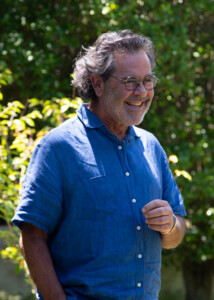Prof Mark Swilling
Distinguished Professor of Sustainable Development at Stellenbosch University and
Co-Director of the Centre for Sustainability Transitions
on
Flows, Transitions and Radical Incrementalism:
Rhizomatic Reflections on a World in Transition
Thursday, 16 February 2023, 13:00 – 14:00
Please join us in-person at the CST
19 Jonkershoek Road
Stellenbosch
If you are unable to connect with us in-person, join us
online using the link HERE
Building on – but going beyond – his book The Age of Sustainability: Just Transitions in a Complex World, Mark intends to explore linkages between the burgeoning use of the notion of flows across many disciplines, the influential literature on sustainability transitions and ways of thinking about incrementalism as a radical political project.
The normative goal of a just transition will anchor and orient the discussion. It is relatively easy to imagine an unjust transition: a decarbonised world driven by for-profit market-oriented ‘green economy’ strategies (supported with state subsidies) that leave the current global structure of inequality intact. The popular alternative is a statist vision that promotes Social Democracy 2.0 or Socialism 2.0. An emerging alternative enabled by the information revolution is the commons, but not the anti-state and anti-market variety. To make sense of this proposition, we need to (a) rethink the relationship between resource and financial flows, the codes that determine the directionality of these flows, and the stocks that are accumulated within private hands because of the persistence of the codes over the last 500 years; and (b) rethink our theory of change, in particular the notion that radical change requires a single all-encompassing fundamental revolutionary structural rupture.
Many disciplines deploy the notion of flows to make sense of recent changes in a globalised world (in particular social anthropology, sociology, industrial ecology and even psychology), but this is most often done without rigorously defining what flows mean. Drawing on Deleuze and Guattari, a conception of flows, codes and stocks is proposed, ending with a suggestion that we need to decouple flows from stocks via a radical project of decoding and recoding. Without this, the commons makes little sense.
However, this implies a theory of change that “structure fetishism” (Roberto Unger) cannot deliver. Radical incrementalism, inspired by a classical Greek but feminist conception of rage, is proposed. The connection between radical incrementalism and the relational dynamics of a commons-based conception of flows in a sustainable world is provided by the African notion of Ukama (that shares many assumptions with the new post-humanism emerging from Western scholars). For many African scholars, the long traditions associated with this notion of ukama refers to a relational worldview that relationally connects everyone with everyone (‘I am because we are’ – sometimes referred to as ubuntu ), everyone with nature (both animate and inanimate nature) and past, present and future via a place in spiritual life for the ancestors.
Radical incrementalist actions to decode/recode flows aimed at expanding a ukamian (relational) conception of the commons may well provide the basis for a radical politics transition.
Join us as Prof Mark Swilling takes us through Flows, Transitions and Radical Incrementalism: Rhizomatic Reflections on a World in Transition.
 Mark Swilling is Distinguished Professor of Sustainable Development at the University of Stellenbosch and Co-Director of the Centre for Sustainability Transitions. He is a member of UNEP’s International Resource Panel acting as Coordinator of the Cities Working Group and was appointed Chairperson of the Board of the Development Bank of Southern Africa for the second time in 2021.
Mark Swilling is Distinguished Professor of Sustainable Development at the University of Stellenbosch and Co-Director of the Centre for Sustainability Transitions. He is a member of UNEP’s International Resource Panel acting as Coordinator of the Cities Working Group and was appointed Chairperson of the Board of the Development Bank of Southern Africa for the second time in 2021.
Mark’s recent publications include Anatomy of State Capture, and The Age of Sustainability: Just Transitions in a Complex World which can be found HERE.

